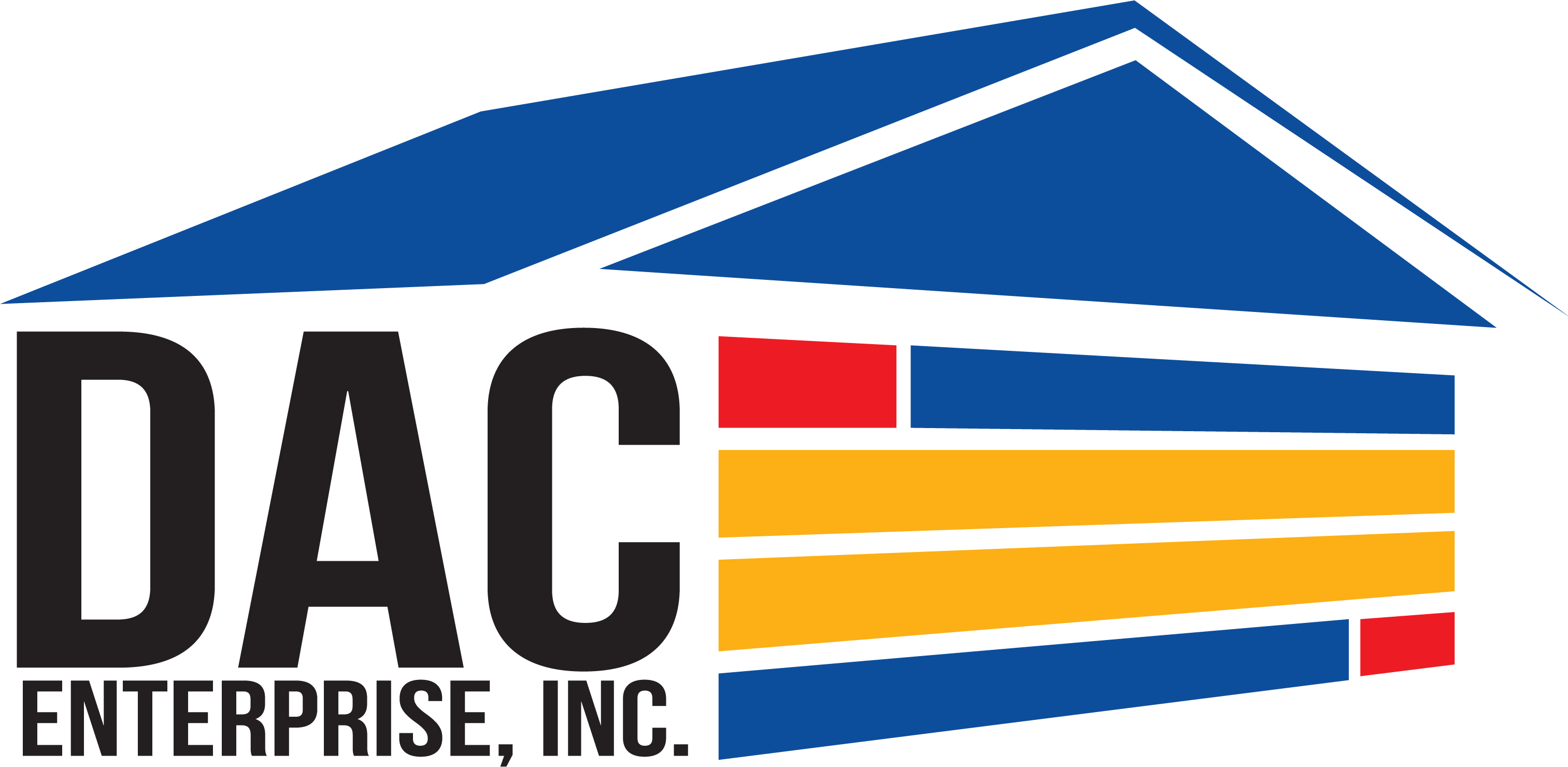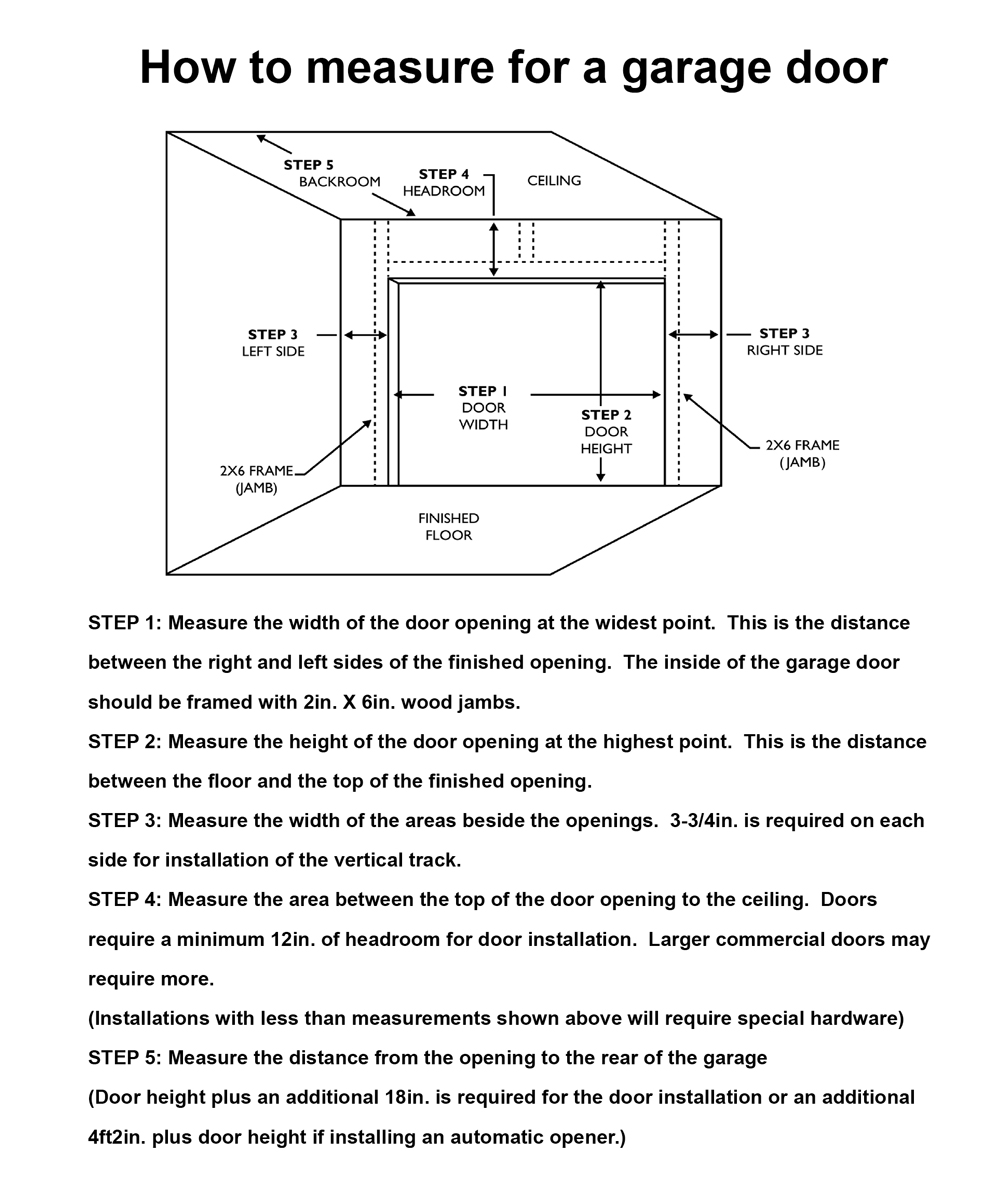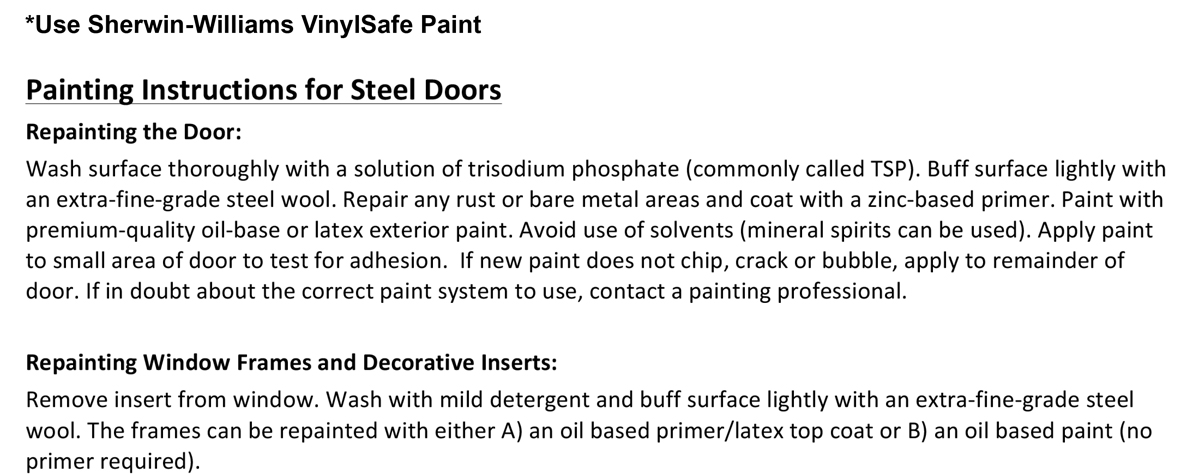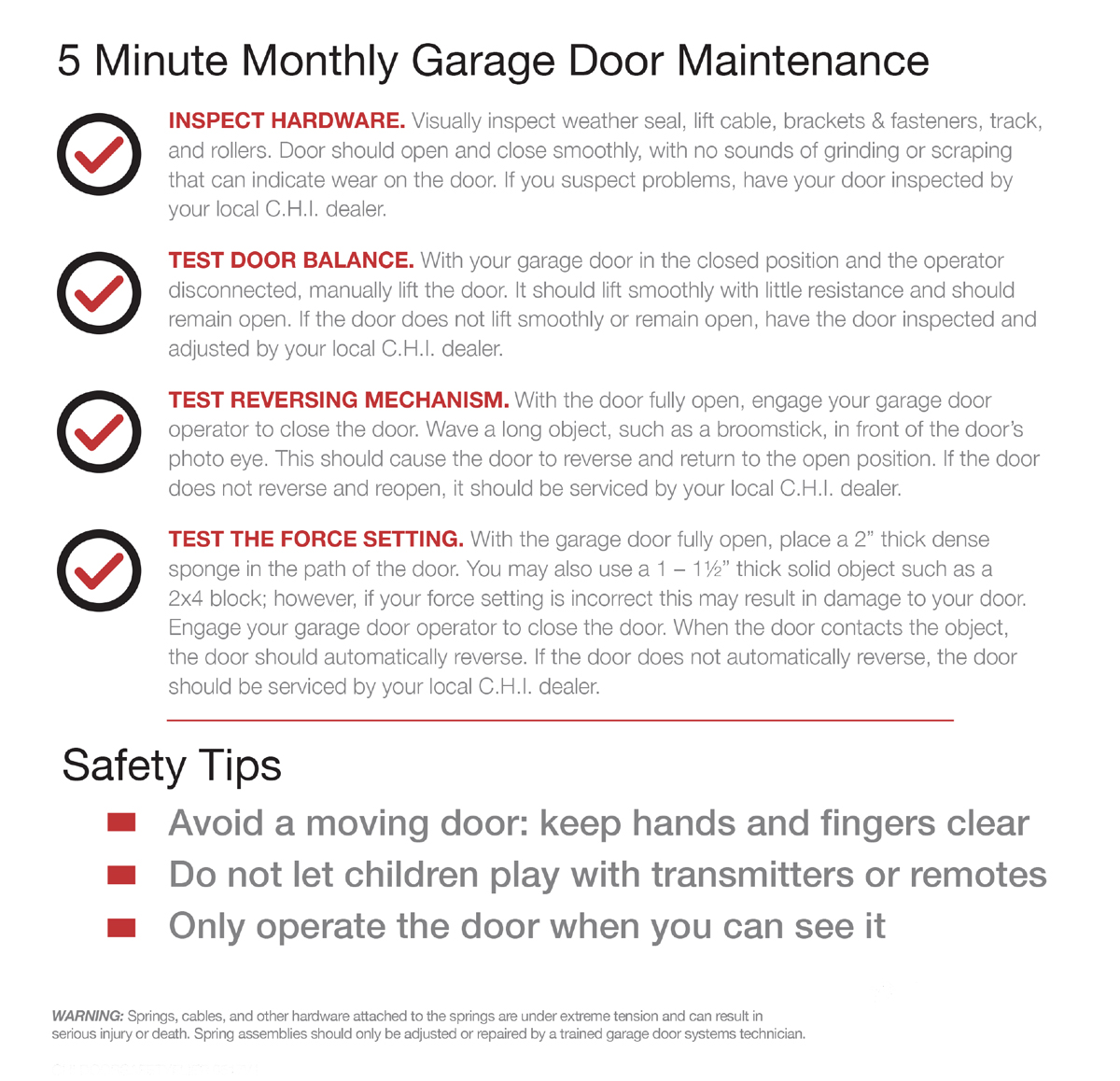Frequently Asked Questions
Can I buy directly from DAC Enterprise?
No, DAC only sells to the wholesale channel of garage door dealers. A homeowner can buy a DAC garage door through a local retail dealer. (Dealer locator)
How do I know which model to choose?
Door models vary depending on residential/commercial, insulated/non-insulated, color, and physical appearance. See our ‘Find My Door’ feature for help or check out the photo gallery for more ideas.
What are the standard sizes available for your residential overhead doors?
In general, standard sizes for door widths are 8’, 9’, 10’, 12’, 16’ and 18’. Some door series may have exceptions to this rule. Color availability may also vary. Feel free to check with us on availability of specific sizes or custom width doors.
Can I paint my garage door?
All of our steel garage doors can be painted with the color of your choice. We recommend using the following instructions to avoid any warranty issues. (refer to Painting Instructions below)
Can I replace a section of my door or do I need to replace the whole door?
Depending upon the damage to the garage door structure, it is possible in many cases to only need a section replacement. Your local door distributor can evaluate your situation and give you a recommendation on the best course of action.
What maintenance does my garage door require?
We recommend that you have your overhead door inspected annually by a professional. (refer to Door Maintenance below)
What if I need replacement parts for my door?
Contact the dealer that the door was purchased from or a local DAC Overhead Door dealer. We are able to supply all overhead door components. If you currently own a DAC door, look for a label stickered on the side of your door panel. This helps us to reference your original order and better assist you with parts/warranty information.
How do I measure for a garage door?
Refer to How To Measure below.
What is the difference between extension and torsion springs?
The two types of springs used on garage doors today are extension and torsion springs. Extension springs are attached on either side of the door and stretch along the horizontal track when the door is closed. Torsion springs are typically located just above the top section of the door and are mounted to the header. They are wound springs and do not expand or contract when the door is moved. Torsion springs are a better choice because they balance the weight of the door better than extension springs for smoother operation and safety. All DAC doors are made using a torsion spring system but we do supply replacement extension springs.
I would like to remove my old garage door, which has standard torsion springs. How can I get the tension off the springs?
Unwinding standard torsion springs requires specific tools and training. Due to the dangerous nature of this process, we recommend you contact a local garage door professional to remove the tension from the springs.
Can I just replace the garage door sections and use my existing track and springs?
All doors are individually engineered to properly balance. To avoid installation problems that could result in personal injury or property damage, use only the track and springs specified and supplied with your new garage door. Do not attempt to reuse the old track, springs, or hardware. Failure to use all supplied hardware will void the factory warranty.
Do I need to reinforce my garage door if I am installing an automatic garage door opener?
Yes, failure to properly install opener reinforcement will result in damage to the garage door and will void the warranty. The reinforcement configuration differs depending on the model number and size of the garage door.
When referring to steel gauge, does a lower number mean thicker steel?
The lower the gauge, the thicker (and stronger) the steel. For example, 24-gauge steel is thicker than 27-gauge steel. However, a “sandwich” constructed door with two 27-gauge steel skins bonded to an insulated core is stronger than a “steel frame” door with a single 24-gauge steel skin.
What is R-Value?
R-Value is a measure of thermal resistance used in the building and construction industry. Specifically, R-Value is thermal resistance to heat flow. Many manufacturers use R-Values to show the energy efficiency of their product. This number is calculated based on the thickness of the insulation and its chemical properties.
Frequently Asked Questions
Can I buy directly from DAC Enterprise?
No, DAC only sells to the wholesale channel of garage door dealers. A homeowner can buy a DAC garage door through a local retail dealer. (Dealer locator)
How do I know which model to choose?
Door models vary depending on residential/commercial, insulated/non-insulated, color, and physical appearance. See our ‘Find My Door’ feature for help or check out the photo gallery for more ideas.
What are the standard sizes available for your residential overhead doors?
In general, standard sizes for door widths are 8’, 9’, 10’, 12’, 16’ and 18’. Some door series may have exceptions to this rule. Color availability may also vary. Feel free to check with us on availability of specific sizes or custom width doors.
Can I paint my garage door?
All of our steel garage doors can be painted with the color of your choice. We recommend using the following instructions to avoid any warranty issues. (refer to Painting Instructions below)
Can I replace a section of my door or do I need to replace the whole door?
Depending upon the damage to the garage door structure, it is possible in many cases to only need a section replacement. Your local door distributor can evaluate your situation and give you a recommendation on the best course of action.
What maintenance does my garage door require?
We recommend that you have your overhead door inspected annually by a professional. (refer to Door Maintenance below)
What if I need replacement parts for my door?
Contact the dealer that the door was purchased from or a local DAC Overhead Door dealer. We are able to supply all overhead door components. If you currently own a DAC door, look for a label stickered on the side of your door panel. This helps us to reference your original order and better assist you with parts/warranty information.
How do I measure for a garage door?
Refer to How To Measure below.
What is the difference between extension and torsion springs?
The two types of springs used on garage doors today are extension and torsion springs. Extension springs are attached on either side of the door and stretch along the horizontal track when the door is closed. Torsion springs are typically located just above the top section of the door and are mounted to the header. They are wound springs and do not expand or contract when the door is moved. Torsion springs are a better choice because they balance the weight of the door better than extension springs for smoother operation and safety. All DAC doors are made using a torsion spring system but we do supply replacement extension springs.
I would like to remove my old garage door, which has standard torsion springs. How can I get the tension off the springs?
Unwinding standard torsion springs requires specific tools and training. Due to the dangerous nature of this process, we recommend you contact a local garage door professional to remove the tension from the springs.
Can I just replace the garage door sections and use my existing track and springs?
All doors are individually engineered to properly balance. To avoid installation problems that could result in personal injury or property damage, use only the track and springs specified and supplied with your new garage door. Do not attempt to reuse the old track, springs, or hardware. Failure to use all supplied hardware will void the factory warranty.
Do I need to reinforce my garage door if I am installing an automatic garage door opener?
Yes, failure to properly install opener reinforcement will result in damage to the garage door and will void the warranty. The reinforcement configuration differs depending on the model number and size of the garage door.
When referring to steel gauge, does a lower number mean thicker steel?
The lower the gauge, the thicker (and stronger) the steel. For example, 24-gauge steel is thicker than 27-gauge steel. However, a “sandwich” constructed door with two 27-gauge steel skins bonded to an insulated core is stronger than a “steel frame” door with a single 24-gauge steel skin.
What is R-Value?
R-Value is a measure of thermal resistance used in the building and construction industry. Specifically, R-Value is thermal resistance to heat flow. Many manufacturers use R-Values to show the energy efficiency of their product. This number is calculated based on the thickness of the insulation and its chemical properties.
Behind every classic is a DAC Overhead Door.
DAC Enterprise, Inc.
1177 Markley Dr.
Plymouth, IN 46563
574-936-5566



